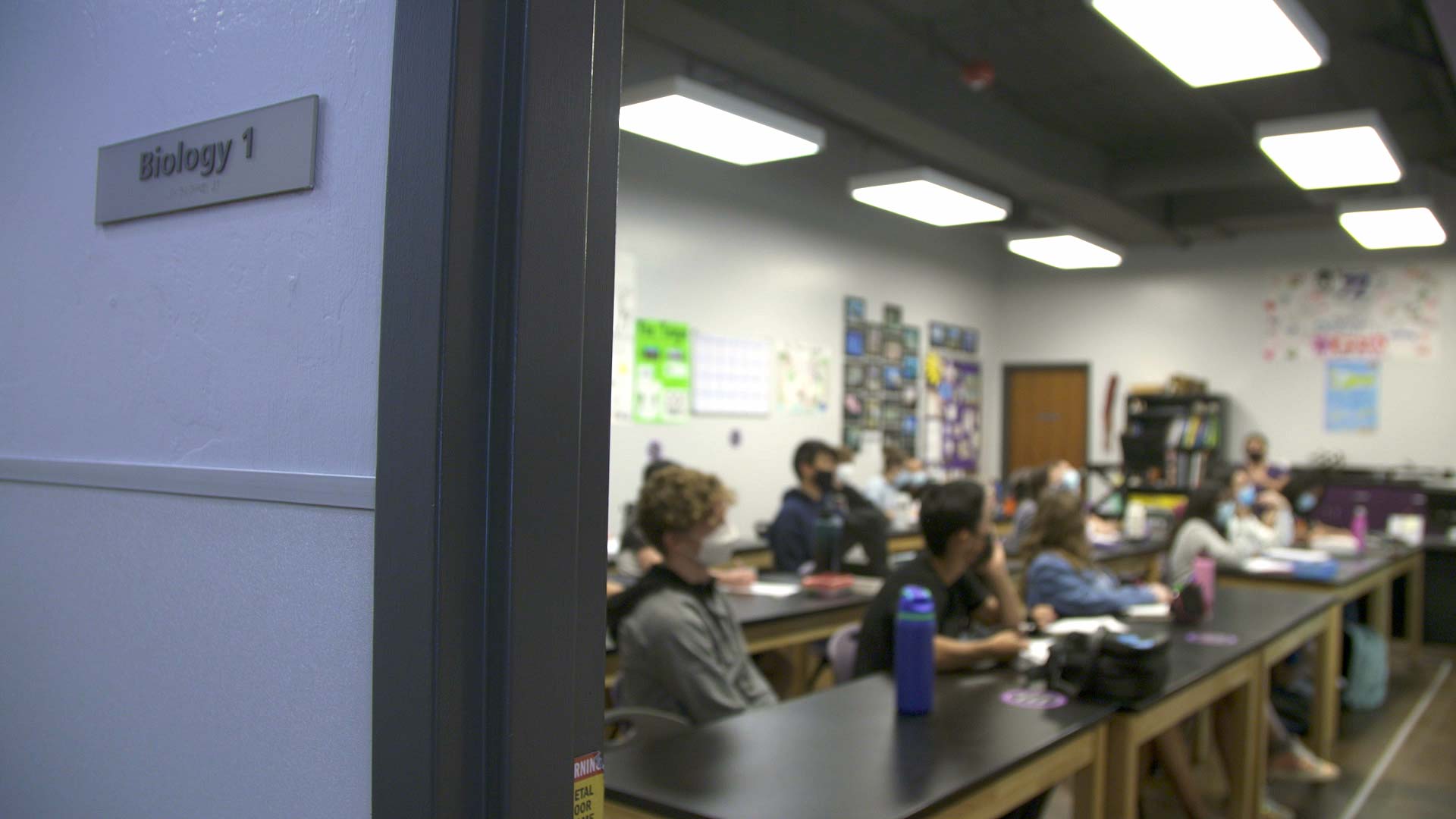 Students attend a biology class at BASIS Oro Valley.
Students attend a biology class at BASIS Oro Valley.
The race for Arizona Superintendent of Public Instruction pits Incumbent Democrat Kathy Hoffman against someone who's held the office before — Republican Tom Horne.
Though both candidates are familiar with the role, they have starkly different philosophies.
Kathy Hoffman prides herself on the fact that when she was elected in 2018, it was the first time in more than 20 years that an educator was chosen for the role.
“I started my career as a preschool teacher then worked in special education as a speech therapist,” Hoffman said.
As a new mom with one term under her belt, she said she feels even more prepared to improve the state’s public school system.
Her challenger, Republican Tom Horne, served as that state’s superintendent from 2003 to 2011. Immediately after, he served as Arizona’s attorney general.
“My friends are telling me I’m going backwards,” Horne said. “My response is the big problems are in the schools right now and that’s really what I want to work on.”
Horne ran for AG again in 2014 but was not re-elected. A three-year investigation found he violated campaign finance laws, but no criminal charges were recommended as he’d already paid $10,000 in fines to the Citizens Clean Elections Commission. A separate inquiry into his first AG campaign found there wasn’t enough evidence to convict him.
“I was ultimately vindicated by the courts,” Horne said. “But it happened after the election. So the truth sometimes doesn’t catch up with the lie quickly enough. So I just advise voters to be skeptical of personal attacks.”
In his latest bid for superintendent, Horne is focused on raising test scores. During a debate on “Arizona Horizon,” he compared proficiency rates during his terms to those during Hoffman’s.
“When I completed eight years, the first time I was superintendent, Arizona proficiency rates were over 60% for math and over 70% for reading,” Horne said. “Under Kathy Hoffman, even before COVID, those rates were 42% and 42%.”
Hoffman said that’s not a fair comparison because when Horne was in office, they used the AIMS test.
“Which was considered not to be a rigorous assessment,” Hoffman said.
That test has since been replaced by the AzMERIT exam.
“Now we hold our students to a higher standard,” Hoffman said. “So it’s not just ‘Can they read?’ It’s ‘What are their comprehension abilities? Are they able to compare and contrast?’ It goes beyond simply being able to read the words and their reading fluency.”
Horne has also focused his campaign on what he calls "restoring discipline" in classrooms, criticizing Hoffman’s social-emotional learning model. He said it forces teachers to play "dumb games" with their students.
“I had one teacher tell me that she told the administrator she really needed to teach her subject and the administrator said ‘If you don’t do social and emotional learning, you're gonna get written up.’ So she had to have the kids do a race with an egg on the spoons,” Horne said. “It’s a terrible distraction from academics.”
Hoffman argues that social-emotional learning is about building character skills like kindness, empathy, and problem-solving.
“Some of these skills can be taught through play, especially for our youngest kids,” she said. “So I think when you hear that ‘It’s silly games,’ someone watching isn’t realizing the importance of those structured activities where kids learn to get along with each other.”
Hoffman’s focus on social skills and mental health support carries into her philosophy on school safety. She said schools need more mental health professionals, as well as facility upgrades, like having only one point of entry in each building. Horne, on the other hand, advocates for police in schools.
“I know some Democratic legislators have said ‘We want to have gun-free schools.’ Well if you say ‘I’m a gun-free school,’ what you’re saying is ‘Come get me, I’m an easy victim,’” Horne said.
There is one thing the candidates agree on: There’s still work to be done when it comes to teacher pay and retention.
“Right now, we’re losing teachers to our neighboring states, all of whom have higher salaries,” Horne said. “We need to spend less money on administration and put more money into teacher salaries.”
Hoffman has touted her role in creating a teacher residency program as a pipeline for recruitment but said she won’t stop there.
“I do want to reach out more to the business community to make sure that the message is not just coming from our education leaders, but also from parents and business leaders to continue demanding that we become competitive in teacher pay and salaries,” Hoffman said.
With such distinct visions for public education, the state of Arizona public schools could look vastly different, depending on which candidate voters choose.

By submitting your comments, you hereby give AZPM the right to post your comments and potentially use them in any other form of media operated by this institution.